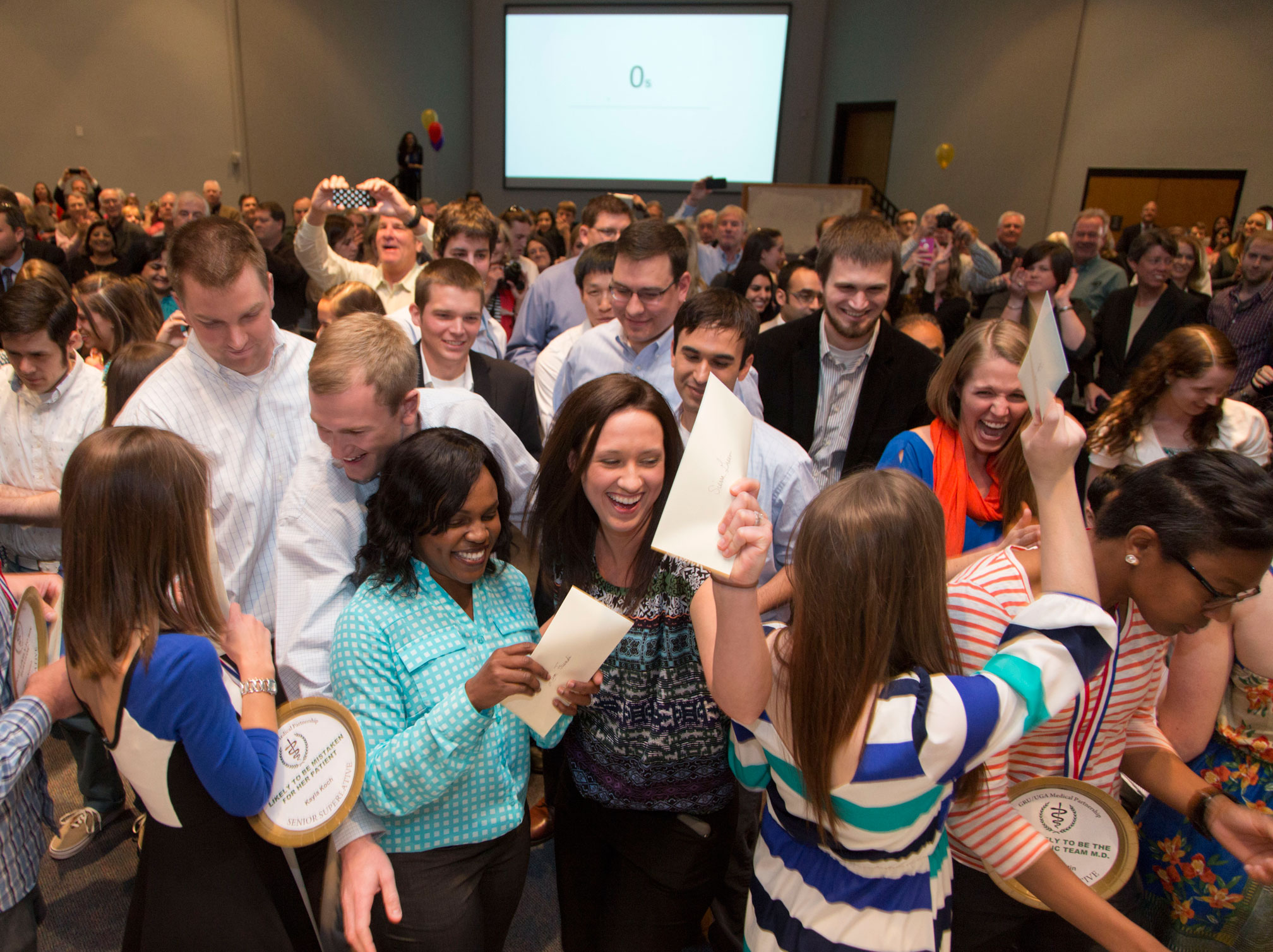At exactly noon on March 21, graduating medical students at the Georgia Regents University/University of Georgia Medical Partnership raced to a table full of envelopes. Their names adorned the outside, the fate of their future careers printed inside.
This ceremony, known as Match Day, is an annual event where graduating medical students across the country learn what kind of doctors they will become and where they will spend their postgraduate medical training. At the beginning of the fourth year of medical school, students decide what specialty they would like to pursue as a career and then apply for open slots in graduate medical training programs, called residencies. Students interview with these residency programs and then both the student and the institution rank list their preferences.
The National Resident Matching Program compares lists and makes the match. On the third Friday of each March, the results are announced. However, on Monday, March 17, students were able to access the computerized system online to discover whether or not they matched, but no further details are learned until the actual event.
Thirty-seven of the 39 students in the GRU/UGA Medical Partnership class of 2014 were matched with a residency program. Residency types ranged from pediatrics and ophthalmology to vascular surgery and psychiatry. These students will train at hospitals including Johns Hopkins, Duke, Case Western and the universities of Virginia, Florida and Alabama. Most students will stay in the Southeast region, but a few are traveling farther away to places such as Colorado, Arkansas and Rhode Island. Nine students out of the graduating class will complete their residencies in Georgia.
All graduating medical students are required to complete at least one year of postgraduate education in order to obtain their medical license. However, most residency programs range from three to five years. Cheney Fenn, a fourth-year student, matched in vascular surgery and will complete her five-year residency in Little Rock, Ark.
“I’m looking forward to my future as a surgeon,” Fenn said.
Residency programs such as neurosurgery and urology have early matches, meaning that students find out where they will be training before the March event.
Zach Balest, a fourth-year partnership student, learned in January of this year that he would be completing his ophthalmology residency at Emory University’s School of Medicine. The ophthalmology residency is three years long but it also requires a one-year internship, which has to be applied for separately.
Balest said that he was happy to learn early on where he would spend his training but he did not know where his internship will be until early Friday at the ceremony. Barbara Schuster, dean of the medical partnership, said that she was proud of the students who worked hard the past four years to get to this day.
“I’m thrilled for the students, I’m thrilled for the faculty and all the preceptors, all the volunteers who have helped them get to this day,” Schuster said.
Thirty-nine medical students are expected to graduate in May of this year. This is the first class of medical students trained in Athens as part of the GRU/UGA Medical Partnership.
For a full list of students and their matching institutions, see http://medicalpartnership.usg.edu/news_events/news/gru_uga_medical_partnership_match_day_results.
A multimedia presentation of the Match Day event is available at http://photo.alumni.uga.edu/mediapg/detail/93/match14.


